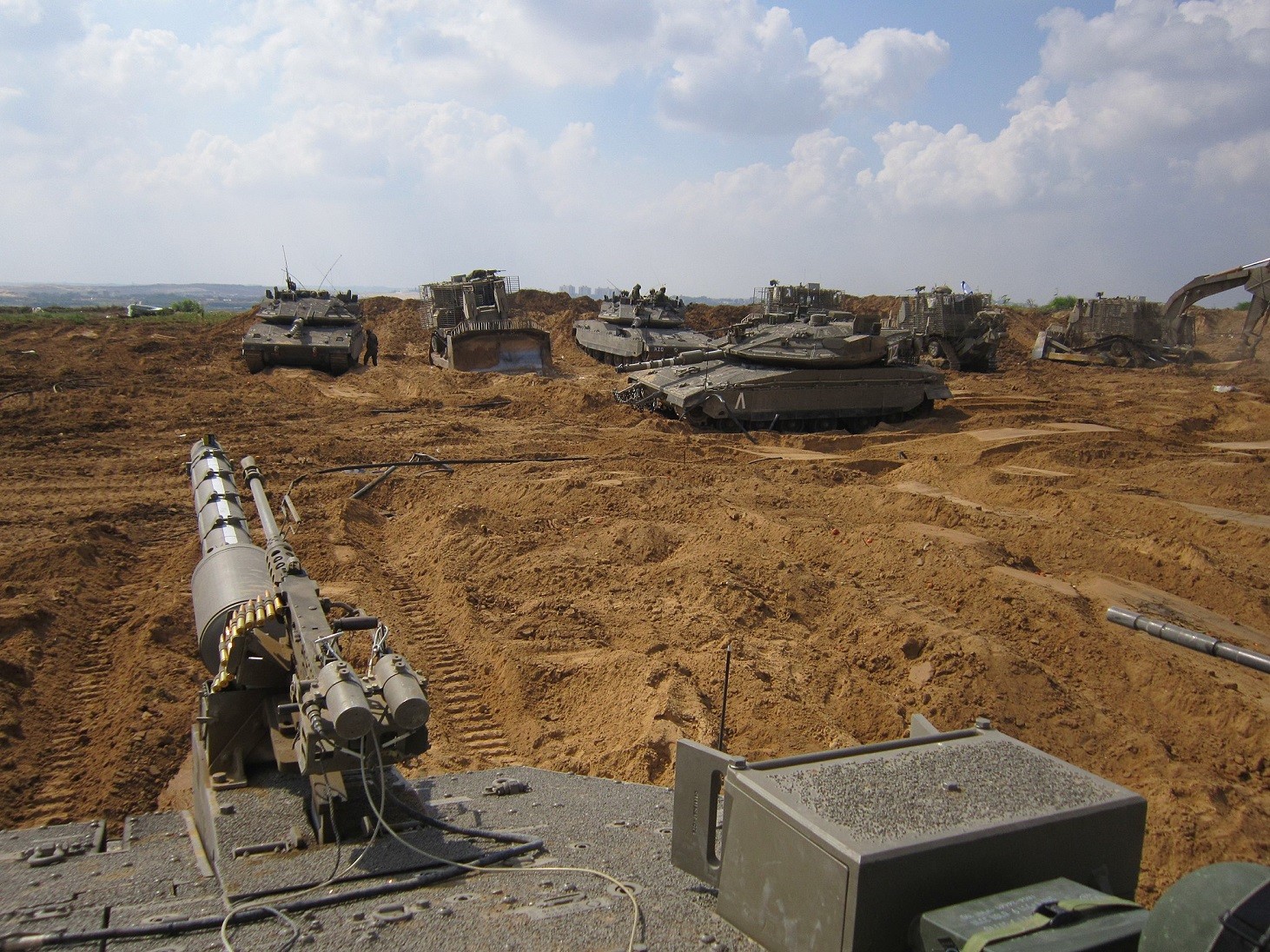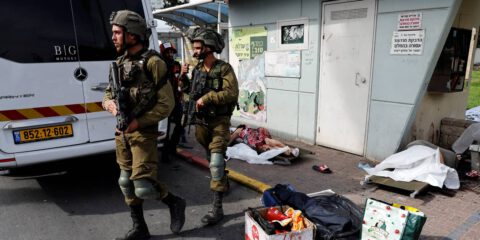Neglecting IDF ground maneuver capabilities is a dangerous gamble.
Hamas is an extremely hostile organization well-rooted in Palestinian society, driven by an intense religious-ideological motivation to harm Israel. It is impossible to completely bring such an organization to its knees by large scale military maneuver, unless the IDF is prepared to rule in Gaza for a long period at a high cost. Therefore, Israel has adopted a patient struggle against Hamas which is meant to degrade the enemy’s capacity to harm Israel as much as possible.
Usually, Israel acts to “mow the grass” only after sustaining a series of attacks and demonstrating a great degree of restraint – thus building legitimacy over time for a large-scale counterattack. This approach aims to generate temporary periods of deterrence, allowing the Israeli home front to enjoy relatively long periods of calm.
Israel prefers to act according to the predominant IDF operational doctrine of the IDF – the “Intel-Firepower” nexus. This means using accurate intelligence and precision-guided firepower to bear down upon identified targets (mostly from the air), with the expectation that this will destroy enemy assets and sap its will to fight. This approach promises almost no casualties on the Israeli side.
Yet, this approach has made violent clashes longer; imposed continuous emergency conditions on the home front with attendant economic costs; and afforded a sense of achievement to enemy forces, which encourages them to persist in their provocations of Israel.
Hamas has adapted to the superiority of Israel’s firepower, learning to deny the IDF accurate intelligence and/or minimize the effectiveness of pinpoint Israeli firepower. Enemy techniques aimed at undercutting the utility of the “Intel-Firepower” approach include fortifying facilities, going underground, dispersing and hiding assets and using human shields.
Moreover, Hamas grasps Israel’s reluctance to conquer Gaza and its preference to focus on the challenges in the North. This translates into greater Hamas brazenness and a higher level of harassment of Israeli communities near the Gaza Strip.
Therefore, a return to a large-scale offensive ground campaign is needed. This will render better results than air activity. The IDF must maneuver into enemy territory, locate and destroy enemy forces (or capture them, thus undermining the myth of the self-sacrificing jihadi “resistance”). The “Intel-Firepower” effort is important, but it cannot be more than a supportive adjunct to the main thrust, via ground forces. Only a determined ground effort will break the spirit of the enemy.
There are exaggerated fears in Israel that such a military offensive will entail heavy casualties. High friction does come with costs, but the relatively short period of ground forces fighting leading to the collapse of enemy forces may bring about lower numbers of losses on the frontlines; let alone in the rear. It seems that new IDF Chief of Staff Lt.-Gen. Aviv Kochavi is preparing the army for such an eventuality.
NOT EVERY MILITARY challenge requires a ground attack, but the IDF must be ready to carry out deep and swift ground maneuvers for several reasons. First, even in fighting an enemy that is not a conventional army, it is important to capture territory used as an operational base for non-state military operations. Controlling this territory denies their freedom of action. The reduction of missile and rocket fire on Israeli citizens can only be achieved by ground forces who act to destroy enemy launching sites.
Second, the capacity for ground maneuver is central to achieving effective deterrence. The enemy may be able to absorb immense damage from the air, but its very survival as a governing entity or its hold over territory is not in danger. On the other hand, the loss of significant territory does constitute a real threat to enemy organizations. Should Israel neglect the capacity to maneuver, its enemies will conclude that Israel’s ability to harm them is limited.
Indeed, some of Israel’s enemies today believe that Israel’s fear of ground warfare and its unwillingness to suffer casualties suggests weakness in Israeli society. To restore deterrence, Israel must not shy away from a demonstration of its capacity for ground maneuver and achievement of decisive victories on the ground in a persuasive way.
Third, ground maneuver must be the IDF’s main tool in winning a campaign against a conventional army. Such a scenario is not on the horizon right now, but could become relevant given regional upheavals – i.e., if a radical Muslim Brotherhood regime should rise in a country like Egypt, or if the Syrian army would be rebuilt after that country’s civil war. It should be borne in mind that building army ground forces is a complex process which takes time. Neglecting IDF ground maneuver capabilities is therefore a dangerous gamble.
Ground maneuver also has a moral dimension. It is the duty of government and the military to remove any threat to the home front as quickly as possible. A situation in which civilians become the IDF’s shield (i.e., the home front takes casualties so that the IDF can avoid ground maneuver) is unacceptable. This amounts to abandoning the civilian population.
It should be recalled that at the beginning of the Palestinian terrorist campaign of 2000-2001, the government was unwilling to maneuver with ground forces into Palestinian cities, and even within the IDF it was commonly argued that the capture of significant territory was costly and unnecessary. Eventually, the IDF was sent into action into the cities of Judea and Samaria and the IDF was able to achieve solid security results through ground maneuver.
Of course, Gaza is different, but a ground offensive against Hamas is inevitable.
The writer is president of the Jerusalem Institute for Strategy and Security (JISS) and a fellow at the Middle East Institute. This article is based on the institute’s new national security plan for Israel, “Might at a Critical Moment,” available at jiss.org.il
Published in The Jerusalem Post 09.08.2019
JISS Policy Papers are published through the generosity of the Greg Rosshandler Family.
photo: Israel Defense Forces [CC BY-SA 2.0]








 - בניית אתרים
- בניית אתרים